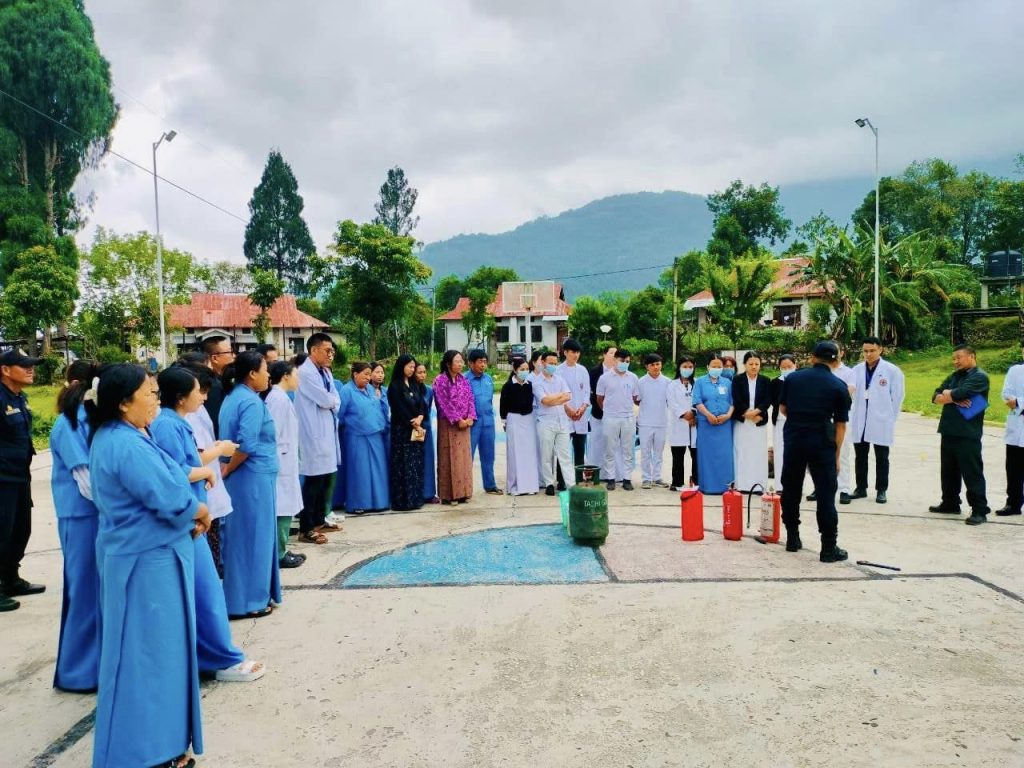
Disasters, whether natural or man-made, can strike at any moment, putting immense pressure on healthcare facilities. Hospitals play a crucial role in disaster management, as they become primary centers for providing emergency medical care and support to affected individuals. Recognizing the significance of preparedness, Eastern Regional Referral, Mongar conducted a 3 days training for all the staff of the hospital. A total of 273 staff attended the training program conducted by the Emergency Department in coordination with the Quality Assurance Unit with financial support from the National Medical Services. Royal Bhutan Police, Mongar assisted the training with their expertise in fire safety and prevention along with practical demonstration on fire safety measures.
The primary objectives of the training were;
- Equip hospital staff with the necessary knowledge, skills, and protocols to effectively respond to various types of disasters, ensuring the safety of patients, staff, and visitors while maintaining the continuity of medical services.
- Ensure preparedness of the hospital to respond and recover from internal and external emergencies and continuity of essential/routine activities.
- Coordinate and organize response to various incidents including protection of the facility and its services and immediate restoration of regular services.
During the training; - Participants were educated on different types of disasters, including natural disasters as well as man-made disasters like fire and mass casualties.
- Each staff member was made aware of their specific roles and responsibilities during a disaster. This included medical staff, administrative personnel, security, and support staff.
- Detailed procedures were outlined for initiating emergency response protocols, including evacuation plans, triage procedures, communication channels, and resource allocation.
- Practical exercises on fire safety measures were conducted for the staff to apply their training in a realistic setting.
Training Outcome;
The outcome of the training program significantly enhanced the hospital’s readiness to respond to disasters effectively. Staff members are now better equipped to handle emergency situations with confidence and competence. Moreover, the training fostered a sense of teamwork and collaboration among different departments, strengthening the hospital’s overall disaster preparedness.
Disaster management is a critical aspect of healthcare delivery, particularly for hospitals. By investing in comprehensive training programs like the one conducted in our hospital, we can ensure a swift and coordinated response to emergencies, ultimately saving lives and mitigating the impact of disasters on our community. Ongoing training and regular drills will be essential to maintain preparedness and adapt to evolving threats in the future.




